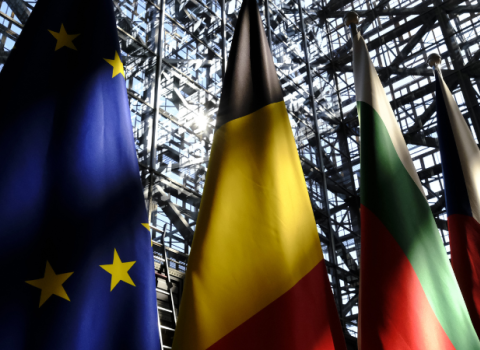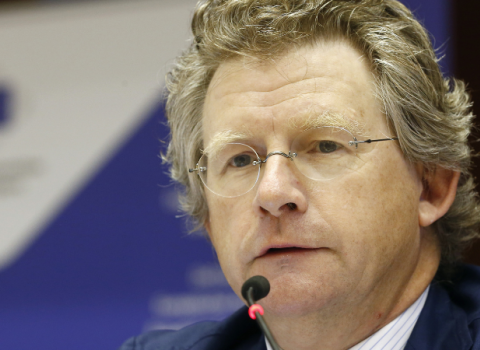The case for dedicated EU-Western Balkans mechanisms for research and innovation
SciDev Roundtable, 5 June 2025
When Albania opened negotiations on Cluster 3: Competitiveness and Inclusive Growth in May 2025, EU enlargement negotiators and Albanian politicians alike celebrated a major step forward in the country's accelerated accession journey. The cluster covers enterprise, industrial policy, digitalisation, education and, critically, Chapter 25 on science and research, central to Albania’s economic and social convergence with the EU. Yet, as civil society representatives, researchers, and policymakers emphasised at the SCiDEV roundtable shortly afterward, genuine progress demands confronting sobering realities: for instance Albania’s innovation performance stands at just 41.8% of the EU average, and regional spending on research and innovation (R&I) remains significantly low at about 0.4% of GDP. By contrast, regional peers, such as Serbia, have already increased R&I spending to around 1% of GDP, underscoring both the scale of the challenge and the clear potential for improvement.
EU instruments are working—but excellence remains elusive
Although Western Balkans teams have joined over 500 Horizon Europe projects worth €170 million since 2021 and have recently secured 7 European Digital Innovation Hubs Network, plus the establishment of European Innovation Technology Innovation Schemes, and continue to benefit also from key EU mobility schemes, such as MSCA, Erasmus+, COST, the region still struggles to compete for research excellence, with only less than a handful of European Research Council grants awarded so far. These disparities underline both the scale of the challenge and the clear potential for improvement, provided sustained political will and investment are prioritised.
Early integration: essential for genuine convergence
To close these gaps, the Western Balkans must be fully integrated into Europe’s research, innovation, and higher-education systems before formal accession, equipping the region with the institutions, skills, resources, and networks essential for genuine convergence with the EU. But achieving this early integration hinges on a reciprocal commitment: Brussels must keep its R&I programmes open, well-funded, and easy to access, and provide targeted support to bridge the gap and combine excellence with solidarity; while Western Balkan governments must match that support with tangible reforms, increased investments, and demonstrably good governance.
Leveraging existing political frameworks
Fortunately, the political architecture to make this happen already exists. Over the past decade, the Berlin Process - via its annual ministerial summits, the Joint Science Conference and the Civil Society & Think Tank Forum - has repeatedly championed scientific cooperation and cross-border mobility, even helping to broker the 2022 agreements on ID-card travel and mutual recognition of academic and professional qualifications, although full implementation is still held back by slow ratification and lingering administrative bottlenecks. In parallel, the region’s Common Regional Market embeds mobility as a cornerstone of long-term regional integration.
Similarly, the EU’s €6 billion Reform and Growth Facility for the Western Balkans explicitly encourages reforms that foster innovation-driven growth and convergence with EU standards. Moreover, at the European Political Community summit in Tirana, European leaders again emphasised mobility and education as essential drivers for accelerated convergence. Regionally owned initiatives, such as IGNITA, continue bottom-up advocacy for strategic importance of mobility driven R&I, not just economically, but politically. The stage is set, what remains is to translate existing architecture into action and measurable results.
What Brussels should do – now
To unite the principles of excellence and solidarity and significantly enhance EU support for the Western Balkans, a dedicated Facility for Skills, Research, and Innovation should be established. This facility would pool instruments from various EU programmes including IPA into a coherent, multi-year funding envelope. Crucially, it should offer simplified application processes, tailored technical assistance, and joint governance with regional authorities to strengthen local ownership and accountability.
Framework Programme 10 (FP10), should include specific funding earmarked for the Western Balkans. Complementing the proposed Western Balkans Research Fund, an excellence-driven regional initiative inspired by the European Research Council, requiring intra-regional partnerships and mobility, this dedicated FP10 support would reinforce centres of excellence, strengthen regional research capacities, and help mitigate brain drain.
EU must keep the pressure on Western Balkans governments as a critical lever for reform. Progress should be judged not merely on legislative alignment but by tangible outcomes, improved Horizon Europe success rates, increased researcher mobility, higher PhD outputs, and enhanced transparency and execution of R&I budgets.
What Western Balkans governments must deliver
Innovation cannot thrive on minimal investment. Each government must commit to a legally binding trajectory toward investing at least 2% of GDP in research and innovation by 2030, supported by transparent, multi-year budgeting.
Western Balkan governments must prioritise governance and institutional reforms in higher education and research, addressing structural gaps and improving transparency. This approach is essential to avoid isolated islands of excellence and to build credible, sustainable national R&I systems aligned with EU standards.
No time for complacency – a shared responsibility
The window of opportunity to embed the Western Balkans fully into Europe's research and innovation landscape is closing quickly. With the next EU Multiannual Financial Framework negotiations approaching in 2026 and Framework Programme 10 already in the design phase, decisive action on a mobility-driven R&I strategy for the region cannot be postponed. The EU has already opened doors through its policies and programmes; now Western Balkans governments must step up with meaningful domestic reforms and funding.





 A unique international forum for public research organisations and companies to connect their external engagement with strategic interests around their R&D system.
A unique international forum for public research organisations and companies to connect their external engagement with strategic interests around their R&D system.